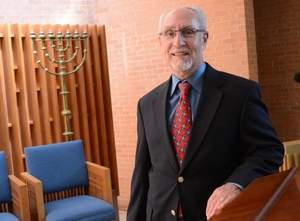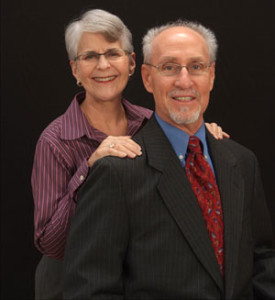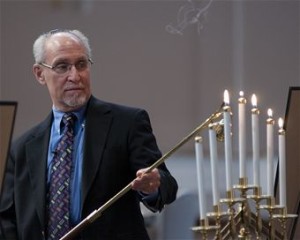
In the last six months, Rabbi Karz-Wagman and his wife have come to like many aspects of their new community. Central Louisiana has long been interested in finding ways to remember to losses and lessons of the Holocaust. Like his predescessor, Rabbi Arnold Task, Rabbi Harley has great interest in finding ways to bring people to a new understanding of one the worst events in history.
On the website for Congregation Gemiluth Chassodim, www.jewishtemple.org, Rabbi Karz-Wagman discusses the importance of Holocaust education. He places particular emphasis on the role of ordinary people—those who helped singular Jewish people survive the horror. The individual risks taken in order save the life of another human being—quite possibly a stranger—were staggering. That same person could have, perhaps much more easily, remained a silent bystander. Countless unknown heroes disregarded their own safety and that of their families to fight against the Nazi evil. Rabbi Karz-Wagman challenges us to take the same stand today to aid the oppressed in our society.
The second suggested lesson Rabbi Karz-Wagman offers is to view survivors as resisters. Those who had to find within themselves the fortitude to fight for their right to exist should inspire future generations to continue to resist oppression.
The Holocaust Memorial, newly dedicated this past fall, represents the importance the Central Louisiana community places on remembering and learning. Those responsible for the memorial wish for the structure to symbolize the dialogue that must continue in order to understand how to avoid history repeating itself. Rabbi Karz-Wagmon continues to work with other educational and religious leaders to make that become reality.

Prior to becoming a spiritual leader, Rabbi Karz-Wagman practiced law. His love of learning about his Jewish faith would lead him in a different direction. Heavily involved in the life of the religious communities and serving on several boards, he found himself at a crossroad and took the path that led him to seminary. 2014 marks his thirtieth year as a rabbi.
For ten years, Rabbi Karz-Wagman worked for Hillels, the Jewish community on college campuses, including six years at Tulane. Working with the young people of Congregation Gemiluth Chassodim is important to the temple, and he notes several young families have returned to the area who had been a part of the congregation growing up. “Young adults who left after graduation to attend college and begin their careers, are now returning home to raise their families. It is wonderful for the life of the Congregation Gemulith Chassodim,” remarked the Rabbi.
Another activity with which Rabbi Karz-Wagman has become involved harkens back to his days as an attorney, where he provides a necessary service to the area. After longtime involvement with the United Way in other communities, Rabbi Karz-Wagman brings his experience and dedication to worthwhile nonprofit cases to Cenla. He indicates that, in the future, an Alexandria-based agency called the Family Justice Center will serve victims of domestic violence. At a time when such services have been lost in the area, Rabbi Karz-Wagman’s knowledge and leadership will be invaluable.

Several activities are on the calendar for the year, sponsored by the congregation, and the community is invited to participate. In fact, when visiting the temple website, visitors are invited to Sabbath services on Friday evening and Saturday morning. Rabbi Karz-Wagman encourages those who might be interested in a better understanding of the Jewish faith to come and learn.
When not working, the Karz-Wagman can be found participating in a bowling league, at the fitness center, or taking in the latest hit at the movie complex, as well as enjoying the creative food, entertainment, and natural beauty of Cenla. His reading passions include religion, mystery, and science fiction.
When asked what plans he has for his new life here, Rabbi Karz-Wagman related a story. It seems that while having lunch with one of the members of his congregation, he realized looking around the restaurant that he did not know a single person other than his companion. He remarked that he set goal for himself that, “A year from now, whenever I walk into any restaurant in town, I plan to know at least one person who I can speak to and call by name.”








